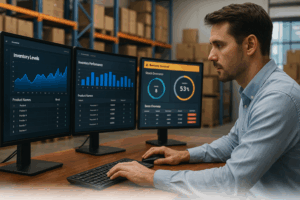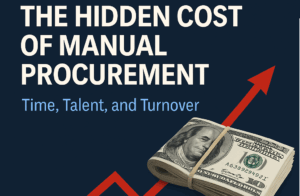Modern supply chains operate as vast, interconnected networks where maintaining product quality and safety is not only a priority but a critical challenge. With goods and services moving across multiple geographies, the complexity of ensuring quality, minimizing counterfeits, and maintaining transparency grows exponentially. Blockchain technology has emerged as a groundbreaking solution, offering enhanced transparency, traceability, and trust across these intricate systems. This article delves into the innovative applications of blockchain and its pivotal role in redefining supply chain quality assurance with real-world success stories and statistical insights.
The Challenges of Supply Chain Quality Assurance
Supply chain quality assurance presents a multifaceted challenge that impacts industries worldwide. Monitoring, verifying, and managing product quality from raw materials to finished goods requires real-time visibility and accurate data. Yet, persistent issues such as information silos, delays, and fraudulent activities compromise product integrity and erode consumer trust.
The global supply chain market, valued at $15.85 trillion in 2021, underscores the sheer magnitude of these challenges. According to a PwC report, 69% of organizations have encountered significant disruptions due to quality issues, while counterfeit goods cost the global economy an estimated $500 billion annually. These figures illustrate the urgent need for innovative, effective solutions to secure supply chain operations.
Enter Blockchain Technology
Blockchain technology, initially synonymous with cryptocurrencies, has rapidly evolved into a transformative tool for supply chain management. At its core, blockchain is a decentralized, immutable digital ledger that securely records transactions, events, and data. Its capacity to revolutionize supply chain quality assurance stems from its ability to address fundamental challenges and provide end-to-end visibility.
Transparency and Traceability
Blockchain creates a transparent, immutable record of every step in the supply chain journey. This visibility enables stakeholders to trace the origin, handling, and movement of products, significantly reducing risks such as counterfeiting. For example, Walmart’s adoption of blockchain for food traceability cut the time required to track mangoes from seven days to 2.2 seconds. Such precision ensures adherence to quality standards and enhances consumer confidence.
Real-Time Monitoring
Integrating IoT sensors with blockchain enables continuous monitoring of environmental factors like temperature, humidity, and location. These systems trigger alerts for deviations from prescribed parameters, ensuring timely corrective action. In pharmaceutical logistics, maintaining specific temperature ranges for vaccines is critical. According to Grand View Research, the global IoT-enabled supply chain market is projected to grow at a CAGR of 12.5% from 2021 to 2028, driven by such applications.
Tamper-Proof Documentation
Blockchain ensures tamper-proof storage of critical documentation, including certificates of origin, compliance, and authenticity. This capability enhances trust among consumers and regulatory bodies. Deloitte’s studies indicate that blockchain can reduce document fraud by over 50%, strengthening the integrity of supply chain operations.
Supplier Verification
Blockchain streamlines supplier verification processes by maintaining immutable records that confirm the authenticity and compliance of each party. IBM’s blockchain platform, for example, ensures ethical sourcing in industries such as coffee production, providing transparency and trust across the network.
Smart Contracts
Smart contracts, automated protocols on the blockchain, execute predefined actions when conditions are met. This functionality enforces compliance and ensures seamless operations. Gartner reports that smart contracts can reduce operational costs in supply chain management by up to 30%, aligning quality assurance with cost efficiency.
Recalls and Audits
In cases of product recalls or audits, blockchain’s transparent records enable quick identification of affected goods, reducing costs and time. The automotive industry, which spends an average of $22 billion annually on recalls, has explored blockchain solutions to streamline this process and mitigate financial losses.
Case Studies: Blockchain in Action
Walmart’s Food Safety Revolution
Walmart’s collaboration with IBM’s Food Trust blockchain platform has transformed food safety standards, setting a benchmark for the industry. By implementing blockchain, Walmart can trace food items, such as leafy greens, within seconds, compared to the previous timeframe of several days. This rapid traceability has proven instrumental in responding to contamination issues, preventing foodborne illnesses, and protecting consumers. The system also allows Walmart to collaborate more effectively with suppliers by ensuring compliance with stringent food safety regulations, fostering transparency, and reducing food waste through precise tracking.
Merck’s Pharmaceutical Tracking
Pharmaceutical leader Merck utilizes blockchain technology to ensure the traceability, integrity, and proper handling of vaccines and other critical medications. By integrating blockchain with IoT devices, Merck has created a robust system that continuously monitors storage conditions such as temperature and humidity. This ensures that vaccines remain effective throughout the supply chain. In addition to enhancing product safety, the blockchain system verifies the authenticity of vaccines, helping to combat counterfeit pharmaceuticals—an issue that costs the industry an estimated $200 billion annually. Merck’s efforts have strengthened public trust and compliance with regulatory requirements.
De Beers’ Diamond Provenance
De Beers employs blockchain through its Tracr platform to guarantee the ethical sourcing and authenticity of diamonds. The system tracks each diamond from the mine to the retailer, ensuring it is conflict-free and ethically sourced. By leveraging blockchain, De Beers has improved transparency across its supply chain, reducing the risk of fraud and enabling retailers to assure customers of their purchases’ provenance. The Tracr platform processes data for over 100,000 diamonds monthly, demonstrating blockchain’s scalability and impact in addressing longstanding challenges in the diamond industry while promoting ethical practices.
The Path Forward: Implementation and Collaboration
Blockchain technology holds immense potential to revolutionize supply chain quality assurance, but realizing this vision requires a comprehensive approach that includes meticulous planning, technological investment, and a commitment to collaboration among all stakeholders.
Collaboration: The Foundation for Success
The development and implementation of blockchain solutions demand a concerted effort from cross-functional teams comprising supply chain specialists, blockchain technologists, legal advisors, and executive leadership. These teams must align on objectives, define use cases, and ensure that the blockchain network addresses the specific challenges of their industry. Collaborative efforts like IBM’s Food Trust provide a blueprint for success, demonstrating how partnerships between businesses and technology providers can standardize adoption and drive innovation. By establishing trust and shared goals, organizations can create a foundation for scalable and impactful blockchain solutions.
Strategic Blockchain Platform Selection
Selecting the appropriate blockchain platform is a critical decision that impacts scalability, privacy, and usability. Public blockchains, such as Ethereum, deliver unparalleled decentralization and transparency, ideal for industries that prioritize open access and public verification. Private blockchains like Hyperledger Fabric, on the other hand, offer controlled access and tailored solutions for organizations seeking secure, permissioned environments. Consortium blockchains provide a balanced approach, enabling multiple stakeholders to collaborate within a shared governance framework. For example, R3’s Corda facilitates partnerships among financial institutions, ensuring both transparency and privacy. A thorough evaluation of organizational needs and platform capabilities is essential to ensure alignment with business goals.
Seamless Data Integration
Successful blockchain implementation hinges on the ability to integrate diverse data sources, including IoT devices, ERP systems, and third-party databases. This integration ensures real-time visibility and traceability across the supply chain. A case in point is Maersk’s TradeLens platform, which connects over 150 organizations to digitize global shipping processes. The platform’s ability to reduce paperwork by 80% highlights the transformative efficiency gains possible through blockchain-powered data ecosystems. Organizations must adopt robust APIs and interoperability standards to facilitate seamless data exchange and maximize the value of their blockchain systems.
Education and Workforce Enablement
Blockchain adoption requires a workforce equipped with the necessary skills to optimize its potential. A Deloitte survey reveals that 55% of organizations face challenges due to skill gaps in blockchain expertise. Comprehensive training programs, tailored to address both technical and operational aspects of blockchain technology, are essential for overcoming this barrier. Employees must be familiar with concepts such as distributed ledger technology, smart contracts, and security protocols. Organizations can also benefit from partnerships with educational institutions and industry leaders to create custom learning pathways. Regular upskilling ensures that teams remain adaptable to the rapidly evolving blockchain landscape.
Commitment to Continuous Improvement
Implementing blockchain is not a one-time endeavor but a continuous process that demands regular evaluation and refinement. Organizations should establish performance metrics, such as error reduction, operational efficiency, and cost savings, to measure success. Periodic audits, stakeholder feedback, and industry benchmarking can help identify areas for enhancement. Furthermore, staying updated with advancements in blockchain technology—such as layer-2 scaling solutions and improved cryptographic methods—ensures systems remain competitive and future-proof. Integrating blockchain with emerging technologies like AI and IoT can unlock additional efficiencies and capabilities.
Ensuring Regulatory Compliance
Navigating the regulatory landscape is a cornerstone of blockchain implementation. Organizations must adhere to data protection laws, such as GDPR in Europe and the California Consumer Privacy Act (CCPA) in the United States. Proactive engagement with regulatory bodies can help shape blockchain-friendly policies and frameworks. Leveraging established standards, such as ISO 22739 for blockchain and distributed ledger technologies, simplifies compliance and fosters trust among stakeholders. A focus on ethical practices and transparent operations further solidifies the credibility of blockchain solutions.
Conclusion
Blockchain technology is redefining supply chain quality assurance by delivering unparalleled transparency, traceability, and trust. It addresses long-standing inefficiencies, enhances collaboration, and enables organizations to deliver consistent, high-quality products and services. As industries continue to evolve, blockchain’s integration with complementary technologies and adherence to regulatory standards will remain pivotal in driving consumer confidence and operational excellence.
Author: Ed Danielov
Publication Date: December 4, 2024
© Copyright 2024 Perfect Planner LLC. All rights reserved.
References
- PwC. “Global Supply Chain Survey 2022.” https://www.pwc.com.
- Grand View Research. “IoT in Supply Chain Market Size & Share Report, 2021-2028.” https://www.grandviewresearch.com.
- Deloitte. “Blockchain: Opportunities for Secure Digital Transactions.” https://www2.deloitte.com.
- Walmart Corporate. “How Blockchain Enhances Food Safety.” https://corporate.walmart.com.
- Gartner. “Smart Contracts: The Future of Automated Supply Chains.” https://www.gartner.com.






